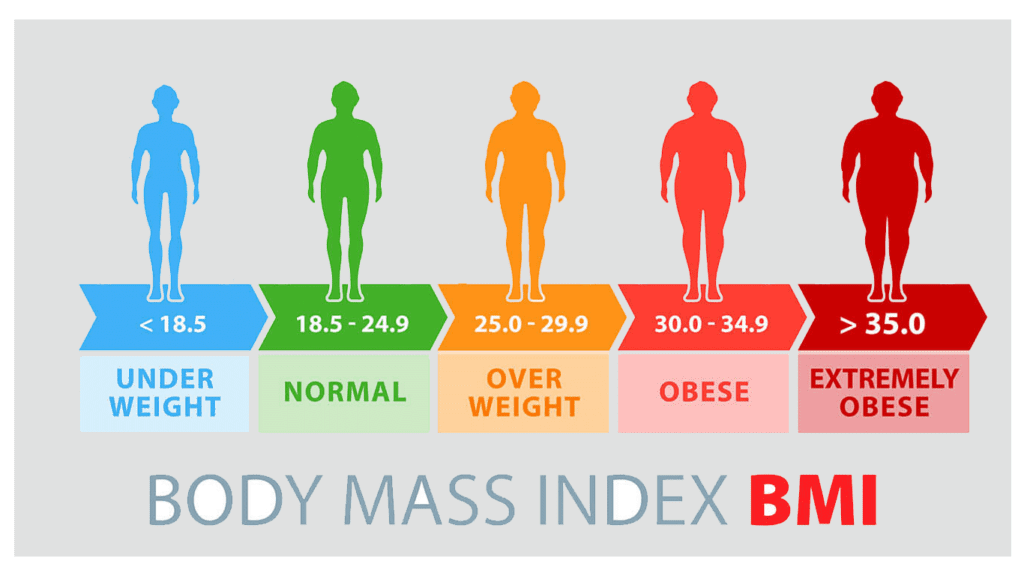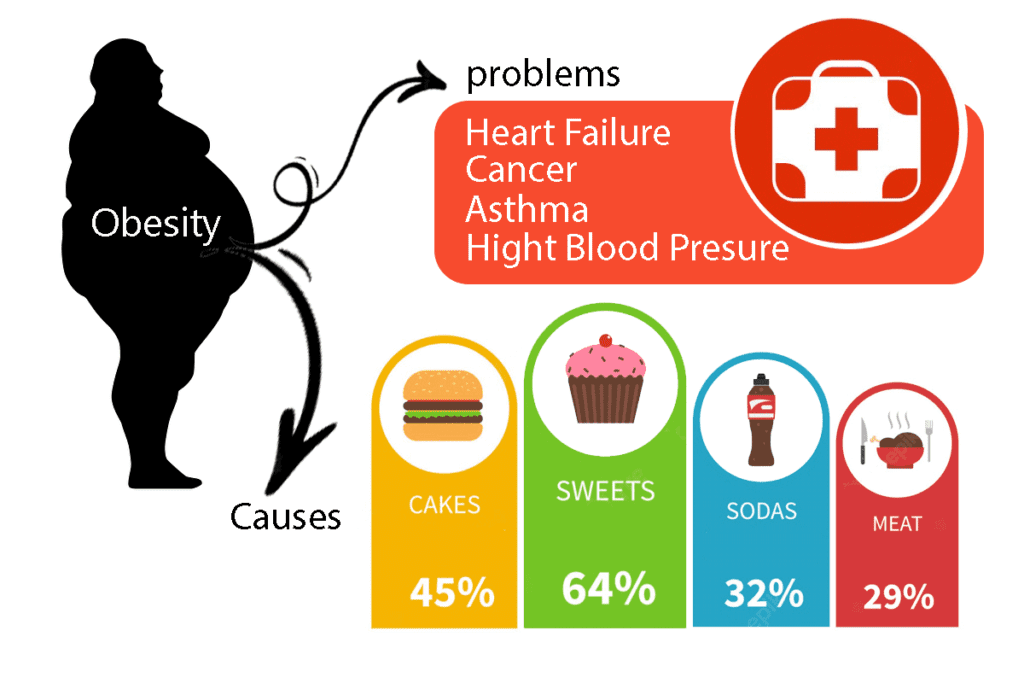

Best Morbid Obesity Guidelines For Medical Treatment
If you are one of the people who care about your health and beauty, sudden weight gain will worry you. Now, if this weight gain is abnormal and disease-like, this worry will be a hundredfold. Has it ever happened that your weight increased in a short period of time and have you noticed this change? In this article and in the continuation of the previous article named “Medical Conditions That Cause Morbid Obesity“, a morbid obesity guideline has been prepared so that it may be able to reduce your worries a little.
Why do you think this happens? There are many reasons for sudden weight gain. One of the leading causes of obesity is weight gain due to pregnancy. Sometimes, due to the use of some drugs such as contraceptives, water, and fluids may be trapped in your body, and this will cause you to gain weight.
Sudden weight gain, like sudden weight loss, can be a vital sign. However, it is less dangerous than that. However, to check the cause of this symptom, you should see a doctor. You can see an endocrinologist or an internal medicine doctor.
When should we see a nutritionist?
It is clear that natural obesity can be controlled by following a healthy diet and exercise. But when obesity is abnormal and leads to an increase in the amount of fat in the body, it will be controversial, and the need for “morbid obesity guidelines” will be clearly palpable. So, you probably want to know when obesity is dangerous and when we should see a doctor. One of the most important things related to obesity is losing weight by exercising or dieting. in that regard, the article “Diet Plan To Reduce Belly Fat For Men” would be beneficial. If your weight does not change despite all these things or you even gain weight, you should see a doctor.
Overeating does not always cause weight gain. Sometimes other causes also cause this symptom. For example, your weight may increase due to diseases such as hypothyroidism. Sometimes you gain weight due to taking some medicines. You should see a doctor to diagnose and treat these cases.

How are obesity-related diseases diagnosed?
In order to diagnose diseases related to obesity, the specialist examines the symptoms, and in most cases, the result can be reached with a blood test. The method of diagnosing some fattening diseases are:
Hypothyroidism:
The doctor first checks the skin’s dryness, neck swelling, and heart rate with a physical examination. A blood test is recommended for an accurate diagnosis of the disease. This test includes a thyroid test (TSH) and a thyroxine (T4) level test.
Polycystic ovary:
First, the symptoms of the disease are checked, and if necessary, a vaginal examination is performed. Abnormal levels of male hormones are checked with a blood test. Cholesterol, insulin and triglyceride levels should be measured in the blood test. The next step in diagnosis is ultrasound.
- Cushing’s syndrome:
If this disease has symptoms, the doctor prescribes a blood test to check the level of cortisol hormone.
Depression:
There is still no specific test to diagnose depression. However, the doctor can diagnose the disease by examining the symptoms, medical records, and medications. Sometimes some underlying diseases or drugs cause depression.

Insulin resistance:
To diagnose the disease, weight and blood pressure is first measured. Then a blood test, including a blood sugar test, oral glucose tolerance test, and hemoglobin test, is performed.
- Prader-Willi syndrome:
The doctor diagnoses the disease according to the symptoms. For a more accurate diagnosis, a blood test is performed. This test is genetic and detects chromosomal abnormalities.
If you are overweight and obese despite following a healthy diet and lifestyle, the first step is to see a nutritionist. After the initial diagnosis of the cause of the obesity problem, the nutritionist will refer you to the relevant specialist.
What is the treatment for obesity diseases?
In the continuation of the morbid obesity guidelines, we will review the strategies for treating obesity. The treatment of obesity diseases is determined according to the symptoms and type of the disease. Some of the principal treatments for obesity are:
- Hypothyroidism: There is no definitive treatment for this disease, and its symptoms can be reduced by prescribing medicine. One of the best drugs to control hypothyroidism is levothyroxine.
- Polycystic ovary: usually, the essential part of weight loss treatment is diet and exercise. Medications such as birth control pills also help to regulate the menstrual cycle and treat symptoms such as acne.
- Cushing’s syndrome: The specialist prescribes medication to manage cortisol levels. Some drugs reduce the production of cortisol in the adrenal glands, and some reduce its production in the pituitary gland. Another group of drugs also reduces the effect of cortisol on tissues.
- Arthritis: The most crucial treatment is lifestyle changes and home remedies. Oral or topical pain relievers are prescribed to reduce symptoms. To reduce swelling, the doctor may prescribe non-steroidal anti-inflammatory drugs.
- Depression: Treatment is determined according to mild or severe depression. Part of the treatment is related to speech therapy. The doctor may also prescribe antidepressants.

- Overeating: You must change your eating habits to control overeating caused by mental illnesses. Along with changing these behaviors, you can practice stress or anger control methods with the help of a psychologist.
- Insulin resistance: To treat and manage this disorder, you must include exercise, fitness, and a healthy diet in your plan. Sometimes the doctor prescribes metformin to control blood sugar.
- Prader-Willi syndrome: the nutrition of these patients should be appropriate. Human growth hormone treatment methods are used to treat this syndrome. Sex hormones are treated with medication, and weight should be managed.
Questions prepared in Morbid obesity guidelines:
Below are some frequently asked questions about obesity and diseases that cause obesity. Stay with us.
What is obesity?
If your body mass index or BMI is between 18.5 and 25, your weight is average. If your weight is more than this amount, you are overweight. If your BMI is between 25 and 10, you are overweight. But if your BMI is more than 30, you are obese.
What Is The Leading Cause Of Obesity?
The leading cause of obesity is not complicated at all. If you overeat and do not exercise enough, you will get fat.

Which doctor should we see to lose weight?
If you want to lose weight, you can visit a nutritionist to consider a suitable diet plan for your weight loss.
Conclusion in morbid obesity guidelines to see a doctor
Studies have shown Many factors are influential in obesity and overweight. In most cases, the main reason for obesity is not following an unhealthy diet and lifestyle. However, sometimes we see that some people become overweight despite following a diet, exercising, and having a healthy lifestyle. In these cases, one should look for the underlying causes of obesity and the existence of diseases that have caused disturbances in metabolism and obesity for various reasons.
If you are overweight and due to the presence of various symptoms, you suspect that the underlying diseases of obesity are the cause, you should see a nutritionist. First, the specialist examines your lifestyle and diet. If your diet is healthy and your daily exercise is regular, tests should be done to diagnose the cause of obesity and the type of obesity-related disease.
After examining the tests and initial diagnosis, the nutritionist will refer you to other specialists if needed.




Share in :
Explore more


